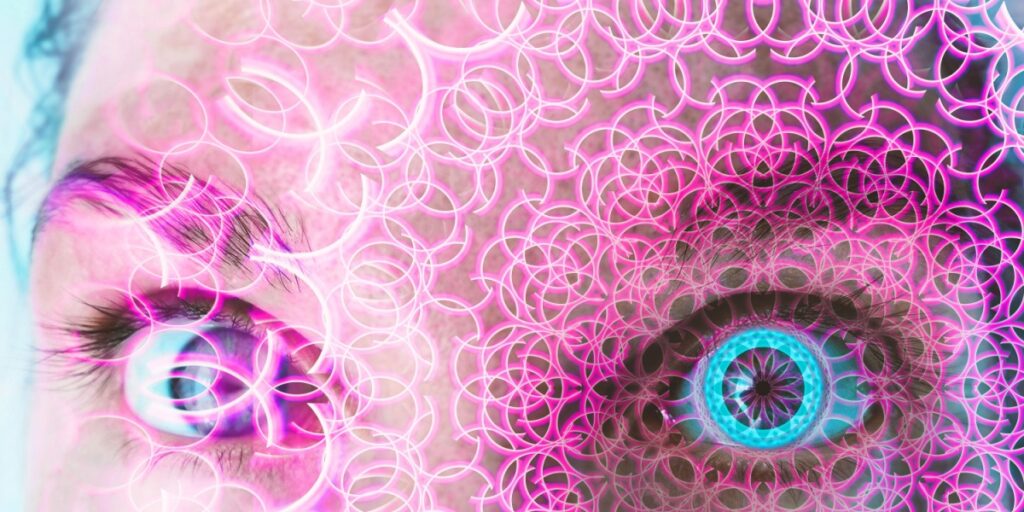Uncategorized
Effects of DMT on mental health outcomes in healthy volunteers
Mental illness is a major global public health problem, with affective disorders (e.g., anxiety and depression) being among the leading causes of disability1. Given the limitations surrounding current treatments, there is a need for exploring novel interventions2. Accordingly, it is noteworthy that classic psychedelic (i.e., serotonin 2A receptor [5-HT2AR] agonist) therapy has been found to improve a range of mental health outcomes (e.g., for a review, see Andersen et al.3).
To date, research on the therapeutic utility of classic psychedelics has primarily focused on psilocybin, lysergic acid diethylamide (LSD), and ayahuasca (a brew that contains the β-carboline alkaloids harmine, harmaline and tetrahydroharmine, as well as N,N-Dimethyltryptamine—DMT4). Psilocybin administration with psychological support has been found to reduce depression and anxiety symptoms in open-label and controlled trials, with effects lasting up to six months in some studies5,6,7,8,9,10,11. Similarly, in a placebo-controlled trial, LSD with psychological support was recently found to be effective in reducing symptoms of depression and anxiety12. Finally, the DMT-containing brew ayahuasca was also found to reduce symptoms of depression13. Findings in controlled studies are supported by evidence from naturalistic research involving large and diverse populations. Together, evidence strongly suggests that, used with care, classic psychedelics can have a positive impact on factors that traverse the mental health spectrum, by elevating psychological well-being14,15,16,17,18, gratitude19,20,21, optimism10,21,22,23, mindfulness capacities24,25,26, and meaning in life10,21. These studies have primarily focused on psilocybin, LSD and 5-MeO-DMT (a compound related to DMT, which induces somewhat different subjective effects)27. Within a very small sample (n = 6), one recent study found significant decreases in depression 1 day after DMT administration28. While larger (but still small) samples have been used in studies employing DMT as a component of the ayahuasca brew13,29, the latter also contains other psychoactive ingredients (including monoamine oxidase inhibitors such as harmine and harmaline) that may also contribute to the therapeutic potential of the brew. Considering these limitations of small sample sizes and drug confounds, the therapeutic utility of DMT monotherapy has not been adequately assessed.
DMT has a somewhat distinct profile from other classic psychedelics30,31. At standard doses, DMT produces an especially intense acute experience that includes vivid visual imagery. These include subjectively-felt encounters with ‘alternate’ dimensions and beings32,33, intense proprioceptive or somatosensory effects, and near-death-like experiences34. Perhaps the most important distinction between DMT and the other classic psychedelics currently being studied (e.g. psilocybin, LSD) is its short acute duration when injected or inhaled35, and apparent lack of tachyphylaxis or desensitization with use36. The acute effects of orally ingested classic psychedelics generally last from 4 to 10 h37 but intravenous (IV) and smoked DMT has an acute duration of approximately 20 min35. Furthermore, DMT’s apparent lack of tachyphylaxis allows for the possibility of flexibly adapting its administration to variable durations38. Given concerns regarding the cost and large-scale accessibility of lengthy and amply staffed psychedelic therapy sessions (e.g., traditionally involving two therapists for 7–10 h), compounds with briefer durations, like IV DMT, may be worth exploring25,27,39. This may be especially relevant for patients who experience a recurrence of their clinical symptoms following psilocybin therapy (see5,8 for examples) and may benefit from shorter (e.g., pro re nata) interventions as treatment follow-ups.
The present report, consisting of two separate studies, aimed to examine the impact of IV DMT on assessments of: (1) negative psychological factors, including depression severity, trait anxiety, and trait Neuroticism (commonly implicated in psychiatric conditions) in psychedelic-experienced healthy volunteers; and (2) positive psychological factors associated with mental health (i.e., well-being, optimism, nature-relatedness, gratitude, and meaning in life). Here, we present results from a placebo-controlled sample in which we assessed the impact of DMT on mental health outcomes, complemented by results from a prospective sample. While the use of separate cohorts represents strengths in replicating findings when analysed separately, the generalizability of findings may be limited when samples are pooled for analyses. Here we perform both replication and pooled analyses. Considering the early stages of DMT research in human volunteers, this study recruited only psychedelic-experienced healthy volunteers to ensure psychological safety, while providing preliminary evidence for the potential benefits of DMT on mental health.

